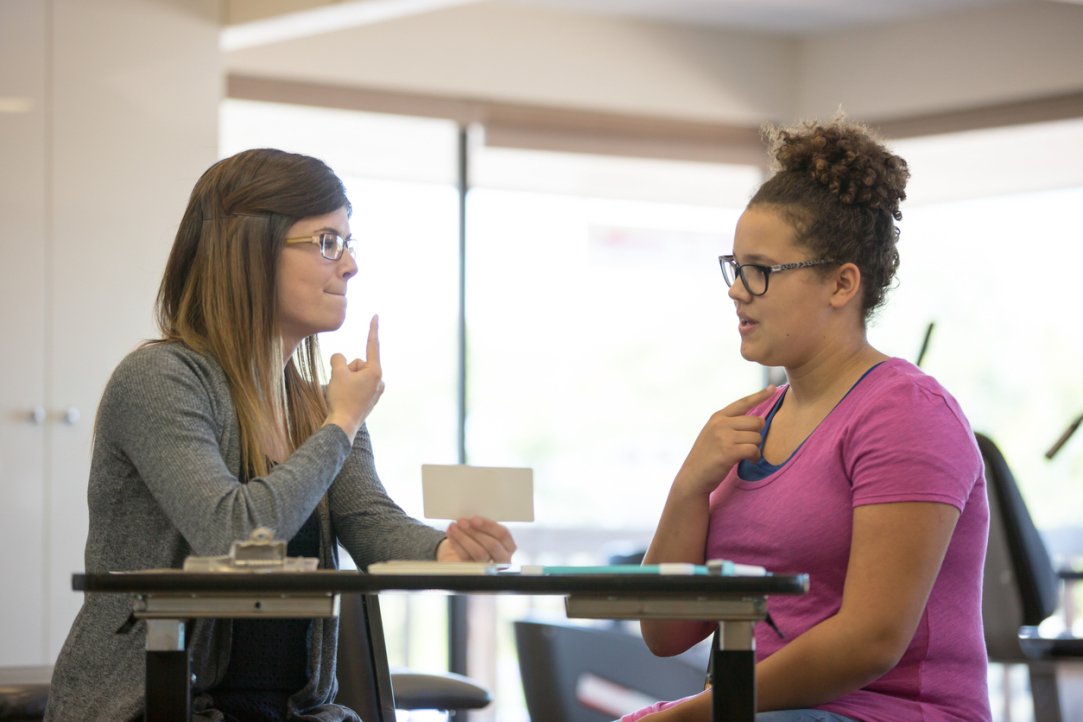HSE Neurolinguists Reveal What Makes Apps Effective for Aphasia Rehabilitation

Scientists at the HSE Centre for Language and Brain have identified key factors that increase the effectiveness of mobile and computer-based applications for aphasia rehabilitation. These key factors include automated feedback, a variety of tasks within the application, extended treatment duration, and ongoing interaction between the user and the clinician. The article has been published in NeuroRehabilitation.
Aphasia is a disorder characterised by complete or partial loss of the ability to speak and understand speech, caused by damage to areas of the brain responsible for language functions. The primary causes of aphasia include stroke, traumatic brain injury, inflammatory brain diseases, brain tumours, and dementia.
Aphasia significantly reduces a person's quality of life, prompting scientists to search for effective ways to restore the language functions impaired by the condition. With the widespread use of smartphones and tablets, a promising and rapidly evolving area of rehabilitation has emerged: serious games (SG) integrated into applications.
These are a special type of digital game designed not only for entertainment, but also to serve specific educational, training, or research purposes. In education, they support professional training, student learning, and foreign language acquisition. In healthcare, such games are used for patient rehabilitation.
Using a specially designed application, a person with aphasia can complete language training tasks and gradually recover their lost abilities. The effectiveness of such applications has already been demonstrated, but it remained unclear which specific tasks and features should be included, and how long users should engage with them to achieve optimal results.
Scientists from the HSE Centre for Language and Brain searched the PubMed and ScienceDirect databases and selected 18 studies which tested mobile and computer applications for aphasia rehabilitation.
The researchers focused specifically on cases where using an application produced remarkable results. For example, a patient who practiced naming 100 words improved to naming 150 words or was able to use the learned words not only in speech but also in writing. Sometimes, using serious games led to the development of related skills; for example, while training language functions, a person’s attention also improved.
In 14 of the 18 papers analysed (78%), patient use of the application resulted in positive effects. While most studies confirmed the effectiveness of the applications based on primary outcomes—ie improvement in the specific skills being trained—eight articles (44%) reported results that exceeded expectations, often showing that patients could apply the trained words in other contexts, such as writing. Additionally, two studies reported improvements in other higher cognitive functions.
The analysis revealed that the effectiveness of the applications was influenced by factors such as automated feedback, a diverse range of training tasks, extended treatment duration, and interaction between the patient and clinician. The latter is particularly important, as clinicians provide additional motivation and assess interim progress.
'At our centre, we are developing a game for aphasia rehabilitation. Reviewing existing studies will help us optimise its testing and incorporate the essential features needed for effective use. Many existing applications include few gamification elements and function more like digital workbooks with exercises. We aim to address this limitation to increase user engagement,' explains Georgii Gorshkov, Junior Research Fellow at the HSE Centre for Language and Brain.
The study was conducted with support from the Government of Moscow (Grant No. 1403-18/23).
See also:
Scientists Test Asymmetry Between Matter and Antimatter
An international team, including scientists from HSE University, has collected and analysed data from dozens of experiments on charm mixing—the process in which an unstable charm meson oscillates between its particle and antiparticle states. These oscillations were observed only four times per thousand decays, fully consistent with the predictions of the Standard Model. This indicates that no signs of new physics have yet been detected in these processes, and if unknown particles do exist, they are likely too heavy to be observed with current equipment. The paper has been published in Physical Review D.
HSE Scientists Reveal What Drives Public Trust in Science
Researchers at HSE ISSEK have analysed the level of trust in scientific knowledge in Russian society and the factors shaping attitudes and perceptions. It was found that trust in science depends more on everyday experience, social expectations, and the perceived promises of science than on objective knowledge. The article has been published in Universe of Russia.
Scientists Uncover Why Consumers Are Reluctant to Pay for Sugar-Free Products
Researchers at the HSE Institute for Cognitive Neuroscience have investigated how 'sugar-free' labelling affects consumers’ willingness to pay for such products. It was found that the label has little impact on the products’ appeal due to a trade-off between sweetness and healthiness: on the one hand, the label can deter consumers by implying an inferior taste, while on the other, it signals potential health benefits. The study findings have been published in Frontiers in Nutrition.
IDLab: Fascinating Research, Tough Deadlines, and Academic Drive
The International Laboratory of Intangible-driven Economy (IDLab) was established at the HSE campus in Perm 11 years ago. Its expertise in data processing and analysis allows researchers to combine fundamental studies with applied projects, including the development of risk and cybersecurity models for Sber. The head of the laboratory, Professor Petr Parshakov, and Senior Research Fellow Professor Mariya Molodchik spoke to the HSE News Service about IDLab’s work.
HSE Tops Ranking of Universities Participating in Priority 2030 Programme
The Russian Ministry of Science and Higher Education has published an updated list of participants in the Priority 2030 programme. A total of 106 universities will receive support this year. HSE University was included in the first group and topped the ranking.
HSE Psycholinguists Launch Digital Tool to Spot Dyslexia in Children
Specialists from HSE University's Centre for Language and Brain have introduced LexiMetr, a new digital tool for diagnosing dyslexia in primary school students. This is the first standardised application in Russia that enables fast and reliable assessment of children’s reading skills to identify dyslexia or the risk of developing it. The application is available on the RuStore platform and runs on Android tablets.
HSE Scientists Optimise Training of Generative Flow Networks
Researchers at the HSE Faculty of Computer Science have optimised the training method for generative flow neural networks to handle unstructured tasks, which could make the search for new drugs more efficient. The results of their work were presented at ICLR 2025, one of the world’s leading conferences on machine learning. The paper is available at Arxiv.org.
Physicists Propose New Mechanism to Enhance Superconductivity with 'Quantum Glue'
A team of researchers, including scientists from HSE MIEM, has demonstrated that defects in a material can enhance, rather than hinder, superconductivity. This occurs through interaction between defective and cleaner regions, which creates a 'quantum glue'—a uniform component that binds distinct superconducting regions into a single network. Calculations confirm that this mechanism could aid in developing superconductors that operate at higher temperatures. The study has been published in Communications Physics.
Neural Network Trained to Predict Crises in Russian Stock Market
Economists from HSE University have developed a neural network model that can predict the onset of a short-term stock market crisis with over 83% accuracy, one day in advance. The model performs well even on complex, imbalanced data and incorporates not only economic indicators but also investor sentiment. The paper by Tamara Teplova, Maksim Fayzulin, and Aleksei Kurkin from the Centre for Financial Research and Data Analytics at the HSE Faculty of Economic Sciences has been published in Socio-Economic Planning Sciences.
Mistakes That Explain Everything: Scientists Discuss the Future of Psycholinguistics
Today, global linguistics is undergoing a ‘multilingual revolution.’ The era of English-language dominance in the cognitive sciences is drawing to a close as researchers increasingly turn their attention to the diversity of world languages. Moreover, multilingualism is shifting from an exotic phenomenon to the norm—a change that is transforming our understanding of human cognitive abilities. The future of experimental linguistics was the focus of a recent discussion at HSE University.



